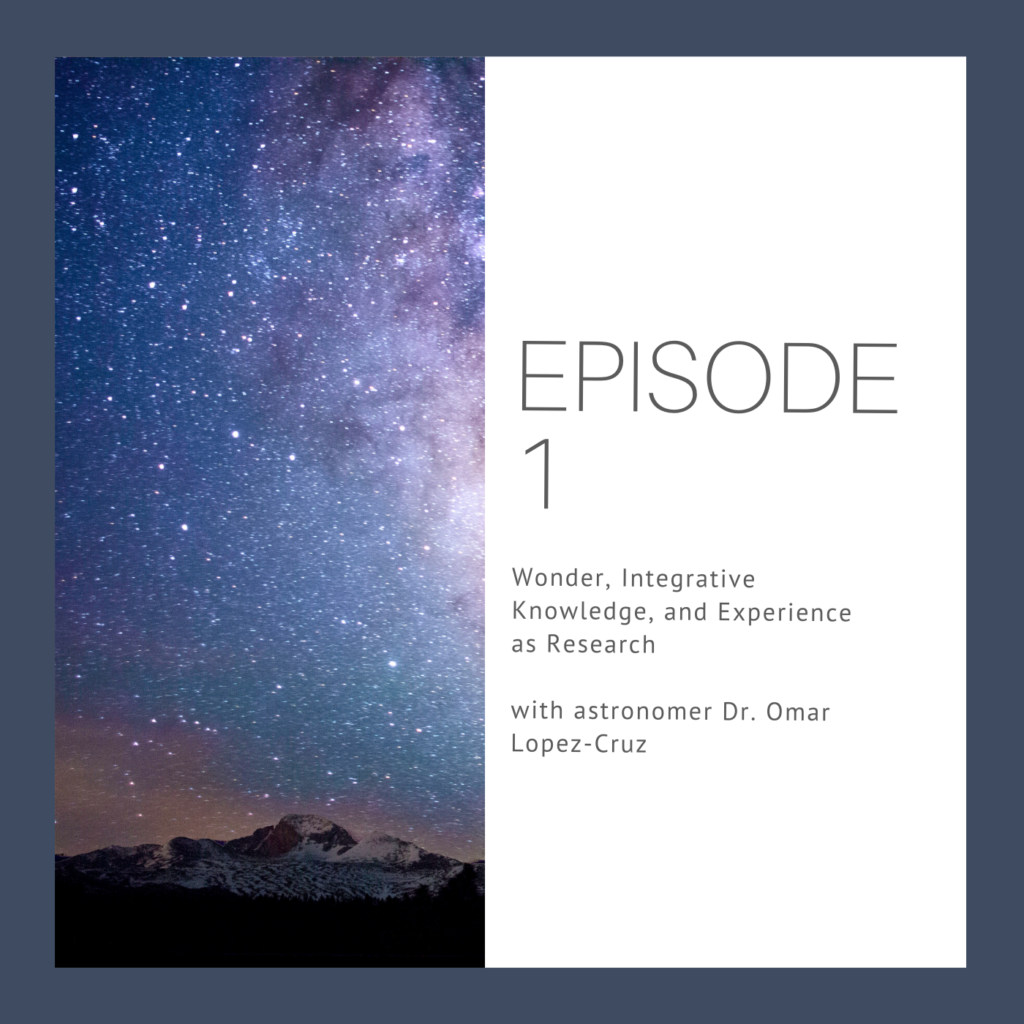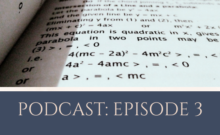Podcast: Play in new window | Download

In this week’s episode, I talk with Dr. Omar Lopez-Cruz about integrative knowledge, wonder, and the importance of experience for creating compelling writing.
Omar and I had the chance to meet while I was working out at the McDonald Observatory in Fort Davis, TX last summer. Because he had an interest in science fiction and had offered to consult for a sci-fi writing course, I knew he would be a perfect guest for the show! I’m so glad he graciously agreed!
I decided to slate our conversation as Episode 1 because it really summarizes the philosophy behind the podcast. I believe in developing integrative knowledge that values the part in relation to the whole, in writing from experience, and in feeding the imagination with wonder. Above all, I believe we should never stop learning, and that we should approach every new opportunity to learn with joy and excitement!
Here are a few highlights of our conversation:
- There are intricate and wonderful interconnections between the branches of science (hint: astronomy is connected to everything!) and there are dangers in overspecializing. It’s important to keep the whole in view as you study the part, otherwise the knowledge isn’t truly understanding.
- The most important thing Dr. Lopez-Cruz learned from ancient natural philosophers like Aristotle and Plato is the value of thought experimentation and the role of imagination in pushing scientific discovery.
- I read a news article recently that reported that people living in the largest cities might only see 8 stars in their lifetime. We discuss the disappearance of dark skies and the unsettling power of silence and isolation. We need these dark and solitary places to remind ourselves of our relationship to our world and our place in the cosmos.
- Understanding the rules of science and grounding imaginative creations in the existing foundations of reality help science fiction worlds feel believable and realistic. A couple of great examples of this are Isaac Asimov’s Foundations series and Andy Weir’s The Martian.
- There are tremendous advantages to experiencing what you want to write, if you want to write compelling stories. Dr. Lopez-Cruz uses the example of someone who wanted to write about wrestling in Mexico — in order to capture this world most fully and accurately, he trained as a wrestler. From my own experience, getting to live and work at the McDonald Observatory for a few days was amazing. (You can read more about my experience here).
Have you conducted research through experience rather than through the library, web searches, or interviews? I’d love to hear about it! Leave me a comment and tell me about it…especially if it’s an opportunity other writers could take advantage of!
Additional resources:
- “The Milky Way is Disappearing.” The Atlantic.
- Read about the McDonald Observatory’s initiative to help the Texas oil & gas industry understand the importance of dark skies here.
- The International Dark-Sky Association
Books and Films*
- The Martian, Andy Weir. Find the novel here and the movie here.
- The Foundation Series. Isaac Asimov.
- The Robot Series. Isaac Asimov.
- Deadpool. (2016)
- To read Immanuel Kant’s theory of “island universes”, see his work Universal Natural History and Theory of the Heavens.
I hope you enjoyed this episode of the podcast — if you did, I’d appreciate a rating and review on iTunes. You can also support the show on Patreon by clicking the button.
Become a Patron!Until next time, happy reading and happy writing!
Stay wonder-filled,
S.K.
*Links to products or other resources may be affiliate links, where I receive a small percentage should you choose to purchase. I only share products or services that I have used personally or come recommended by people I know and trust.



Leave a Comment